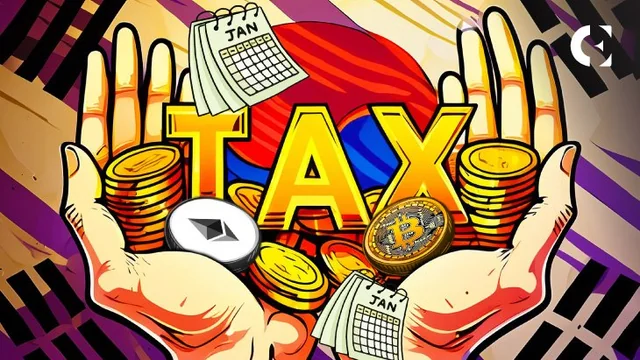Introduction
South Korea has become one of the most important players in the global crypto market. Millions of citizens use digital assets not only for trading but also for payments, savings, and innovation. At the same time, the government has created strict rules to keep the market transparent and safe. Understanding cryptocurrency tax rules Korea and the wider legal framework is now essential for anyone who wants to invest or trade in 2025.
Many readers ask: is cryptocurrency legal in Korea? The answer is yes, but it comes with strong regulation. The government requires exchanges to register, report transactions, and follow anti-money laundering measures. In 2025, new tax and reporting obligations are also changing how investors handle profits. For individuals and companies, this means careful planning and compliance are necessary to avoid penalties.
In this article, we will look at the history of South Korea cryptocurrency regulation 2025, explain how cryptocurrency is taxed in Korea, and explore rules for trading and cryptocurrency mining regulation Korea. We will also discuss how platforms like Immediate Rise can help investors adapt to these changes and manage assets more effectively.
Below is an outline of what we will cover:
- History of regulation and legal status of cryptocurrency in South Korea
- Main regulators and their roles
- Tax rules for trading, staking, and mining
- Reporting obligations for individuals and companies
- Impact on exchanges and local businesses
- Future outlook and opportunities for investors
By the end of this guide, readers will have a clear understanding of the rules, risks, and opportunities in the Korean crypto market.
History of Regulation in South Korea
The history of cryptocurrency in South Korea is marked by fast growth and equally fast government response. In the early years, between 2013 and 2017, digital assets were widely used with little control. Many people saw crypto as a quick way to earn, and exchanges appeared across the country. However, the lack of clear rules also created risks such as fraud and market manipulation.
In 2017, during the global crypto boom, the government started to take action. Initial Coin Offerings (ICOs) were banned due to concerns over scams. At the same time, banks were required to work only with verified customers. This period was the first big step toward building a framework for South Korea cryptocurrency regulation.
Between 2020 and 2021, stronger laws came into effect. Exchanges were told to register with the Financial Services Commission (FSC) and to follow anti-money laundering standards. The Financial Intelligence Unit (FIU) was given more power to track suspicious transactions. These changes made it clear that cryptocurrency is legal in Korea, but it had to operate within strict limits.
By 2023 and 2024, tax policies were discussed in detail. The government announced that from 2025, digital asset profits would be subject to official taxes. This marked a shift from crypto being seen as “grey zone income” to being treated like other financial assets. The country also began preparing to join international systems, such as the OECD’s reporting framework, to share tax data across borders.
Today, in 2025, South Korea has one of the most detailed systems for cryptocurrency tax rules Korea. The rules are designed to protect investors, ensure fair taxation, and reduce illegal activities. This strong regulatory background helps explain why platforms like Immediate Rise focus on compliance and secure trading for Korean investors.
Main Regulators and Their Roles
In South Korea, cryptocurrency is managed by several government bodies. Each plays a different role, and together they shape how cryptocurrency tax rules Korea and trading laws work. Understanding who these regulators are is important for anyone investing in 2025.
Financial Services Commission (FSC)
The FSC is the central authority for financial regulation. It sets the legal framework for exchanges and crypto service providers. In 2025, the FSC requires platforms to register, meet strict capital requirements, and follow anti-money laundering (AML) standards. Without FSC approval, no exchange can operate legally in Korea.
Financial Intelligence Unit (FIU)
The FIU is part of the FSC but focuses only on monitoring suspicious transactions. It enforces “Know Your Customer” (KYC) policies and checks whether exchanges follow reporting obligations. The FIU works closely with banks to block accounts linked to anonymous trading or illegal transfers. This is central to South Korea cryptocurrency regulation 2025.
National Tax Service (NTS)
The NTS handles taxation for individuals and companies. It is responsible for collecting taxes on income from trading, staking, and cryptocurrency mining regulation Korea. With the new 2025 laws, the NTS will also receive data directly from exchanges and international reporting networks, making tax avoidance more difficult.
Other Government and International Cooperation
Besides the main agencies, the Ministry of Justice and law enforcement agencies also take part in fighting crypto-related crimes. On the global stage, South Korea works with the OECD and FATF to harmonize rules with other countries. This international alignment makes it clear that cryptocurrency is legal in Korea, but only when rules are followed.
For investors and businesses, these regulators can seem complex. Platforms like Immediate Rise simplify this by offering tools that follow all requirements, helping users trade and invest without breaking local laws.
New Tax Regime 2025
From 2025, South Korea introduced a clear system for taxing digital assets. This was a major change, as for years crypto profits were seen as a “grey area.” Now, investors must understand how cryptocurrency is taxed in Korea to avoid penalties and to plan their finances properly.
Types of Taxable Income
The National Tax Service (NTS) has divided crypto income into several categories:
- Trading profits: Gains from buying and selling cryptocurrencies on exchanges.
- Staking and lending income: Earnings from providing liquidity or lending tokens.
- Mining income: Profits from producing coins through cryptocurrency mining regulation Korea frameworks.
Each of these categories is subject to income tax, with different reporting requirements.
Tax Rates and Thresholds
Profits above a set threshold are now taxable. The government has created a progressive system that treats digital assets like other financial investments. Below is a simplified example of how this works:
| Annual Crypto Profit | Tax Rate |
| Up to ₩2.5 million | Exempt |
| ₩2.5 million – ₩50 million | 20% |
| Above ₩50 million | 25% |
Examples of Taxation
If an investor makes ₩3 million in profit from trading, the first ₩2.5 million is exempt, and the remaining ₩500,000 is taxed at 20%. For miners or those staking tokens, the same logic applies: income is added to their yearly tax return and taxed under these brackets.
Role of Exchanges and Reporting
Exchanges are required to share transaction data with the NTS. This means the government can easily cross-check what investors report. The system also connects with the OECD’s global reporting framework, so hiding funds abroad is becoming nearly impossible.
For many investors, keeping track of trades and profits is complex. This is why platforms like Immediate Rise integrate tracking tools that automatically calculate earnings and help users prepare their tax documents. This reduces the risk of errors and ensures compliance with South Korea cryptocurrency regulation 2025.
Reporting and Disclosure Requirements
Along with new taxes, South Korea has strict rules on how investors must report their crypto activities. Knowing these requirements is essential for anyone who trades, mines, or invests in digital assets. Failure to report on time can result in heavy fines or even criminal charges.
Filing Deadlines
Investors must include their crypto income in the annual tax return. The deadline usually matches the regular income tax filing season. Late submissions may lead to penalties, interest charges, or audits by the National Tax Service (NTS).
Required Documentation
To prove income, investors must keep detailed records of all transactions. These records should include:
- Date and time of each trade
- Type of cryptocurrency
- Amount bought or sold
- Value in Korean won at the time
- Fees paid to the exchange
For miners, records of hardware expenses, electricity costs, and mining rewards are also required. Staking or lending income must be shown with platform statements or blockchain records.
Automatic Information Exchange
South Korea is preparing to join the OECD Crypto-Asset Reporting Framework. This means that information about investors’ digital assets will be automatically shared with tax authorities in other countries. It will be harder to hide income overseas, making compliance even more important.
Consequences of Non-Compliance
Not reporting, or underreporting, can lead to strict penalties. These include financial fines, seizure of assets, and in some cases, criminal investigations. The government has made it clear that tax evasion in the crypto market will be treated the same way as other financial crimes.
To avoid mistakes, many investors now use automated tools. Platforms like Immediate Rise make it easier by generating transaction summaries, profit reports, and even ready-to-use data for tax filings. This ensures users stay safe under the new cryptocurrency tax rules Korea.
Restrictions and New Rules for Exchanges
Crypto exchanges are the backbone of the market in South Korea. To ensure safety and transparency, the government has introduced stronger rules in 2025. These rules affect how platforms operate and how users can trade.
Licensing and Registration
Every exchange must be licensed by the Financial Services Commission (FSC). Without official registration, platforms cannot provide crypto services legally. This guarantees that only approved companies can handle digital assets, reducing risks of scams.
AML and KYC Compliance
Anti-money laundering (AML) and Know Your Customer (KYC) checks are now mandatory. Users must verify their identity with official documents before trading. Anonymous accounts are no longer allowed. This is part of South Korea cryptocurrency regulation 2025 designed to stop illegal money transfers.
Banking Restrictions
Banks are only allowed to work with licensed exchanges. This means deposits and withdrawals must be linked to verified accounts. Investors using unregistered platforms risk losing access to financial services.
Impact on Major Exchanges
Big platforms like Upbit and Bithumb have adapted to these laws, but smaller exchanges have struggled. Some had to shut down, while others merged to survive. The market is now more stable but also more centralized.
Effect on Investors
For traders, these rules mean fewer choices but higher security. Fraud and market abuse are harder under the new system. Still, the tighter rules also increase costs for exchanges, which may result in higher fees for users.
To keep up with these changes, platforms like Immediate Rise ensure their services follow the latest licensing and AML requirements. This allows investors to focus on trading while staying compliant with cryptocurrency tax rules Korea and exchange regulations.
Political and Economic Influences
The direction of crypto regulation in South Korea is not only about technology but also about politics and the economy. In recent years, changes in government leadership and global financial pressures have shaped South Korea cryptocurrency regulation 2025.
Political Shifts
Different administrations in South Korea have taken different approaches to digital assets. Some governments encouraged innovation, while others focused on strict control. In 2024 and 2025, new policies were introduced to balance growth with investor protection. Political debates often centered on tax fairness and preventing speculative bubbles.
Global Cooperation
South Korea is part of the G20 and works closely with the OECD. As the country joins the OECD Crypto-Asset Reporting Framework, it shows commitment to aligning with international standards. This cooperation is key to preventing tax evasion and strengthening the credibility of the Korean market.
Economic Priorities
The government sees regulation as a way to stabilize the market and protect household savings. At the same time, officials want to attract institutional investors and build the country’s role as a fintech leader. Strict cryptocurrency mining regulation Korea is also connected to energy policy, as mining uses large amounts of electricity.
Impact on Investors
For everyday traders, political and economic changes translate into new compliance rules and possible shifts in tax rates. For businesses, it creates both challenges and opportunities, especially for those that adapt quickly to regulation.
Platforms like Immediate Rise help investors manage these uncertainties by offering tools that work within the current legal system. This makes it easier to navigate the effects of political and economic changes without risking penalties or missed opportunities.
Opportunities for Investors and Companies
While strict rules may seem challenging, they also create new chances for investors and businesses. By following cryptocurrency tax rules Korea and operating within the legal framework, market participants can benefit from greater stability and trust.
For Individual Investors
Compliance gives access to safer platforms and legal protection. Traders who report income correctly can avoid fines and enjoy peace of mind. The market is also more transparent, with reduced risks of fraud. Many investors now see regulation as a positive step, since it protects their savings and opens doors to institutional-level services.
For Businesses and Exchanges
Companies that meet South Korea cryptocurrency regulation 2025 standards can attract more customers and work with banks without issues. Licensed exchanges have the advantage of being recognized by the government, which builds user confidence. There is also room for startups to offer tax-reporting tools, blockchain services, or compliance solutions.
Institutional Participation
Clear rules encourage banks, asset managers, and global investors to join the Korean crypto market. This could increase liquidity and create new financial products like ETFs and regulated lending services. The legal framework also positions South Korea as a regional hub for crypto innovation.
Using Platforms like Immediate Rise
Investors who want to adapt smoothly can use platforms such as Immediate Rise. The platform provides automated tracking, secure trading, and compliance-friendly features. By combining convenience with legal safeguards, it allows users to grow their portfolios without worrying about breaking tax or reporting laws.
- Transparent taxation builds trust in the market
- Compliance opens access to banking and institutional services
- Platforms like Immediate Rise make adaptation easier
Future Outlook of the Korean Crypto Market
The future of cryptocurrency in South Korea looks both promising and challenging. With strong South Korea cryptocurrency regulation 2025, the government is shaping a market that is more secure and transparent. At the same time, investors and companies must adapt to stricter rules and higher reporting standards.
Growth of Institutional Involvement
More banks and asset managers are expected to join the crypto market. This will likely lead to new products such as regulated investment funds, futures, and exchange-traded funds (ETFs). These tools can make the market more attractive for large-scale investors.
Innovation and Startups
Regulation can encourage startups to build services around compliance, tax reporting, and security. Blockchain projects may also benefit from government programs that support digital finance and technology research.
Integration with Global Standards
As South Korea adopts the OECD’s reporting framework, cross-border trading will become safer and more transparent. Investors will be able to operate in a system that matches global standards, making it easier to expand internationally.
Challenges Ahead
Despite the opportunities, there are challenges. Higher taxes and stricter rules may push some small traders out of the market. Mining operations will face tighter energy-related regulations. Exchanges will also need to invest more in compliance systems, which may increase user fees.
Still, platforms like Immediate Rise show that adaptation is possible. By offering compliance-ready tools and user-friendly features, they help investors stay active while respecting cryptocurrency tax rules Korea. This combination of safety and growth is likely to define the next stage of the Korean crypto market.
Conclusion
South Korea has become one of the world’s most closely regulated crypto markets. In 2025, clear cryptocurrency tax rules Korea and strict oversight give investors both responsibilities and opportunities. The government treats digital assets like any other financial product, ensuring that taxes are collected and illegal activity is reduced.
For individuals, the key question — how cryptocurrency is taxed in Korea — now has a simple answer: profits are taxable, and full reporting is required. For businesses, following South Korea cryptocurrency regulation 2025 means better access to banks, higher credibility, and the chance to attract global partners. Even for miners, where cryptocurrency mining regulation Korea has added limits, there are still paths forward with legal compliance.
The Korean approach is clear: crypto is legal, but only within a transparent and controlled system. This balance of innovation and oversight makes the market safer and more stable for everyone.
For investors who want to stay ahead, platforms like Immediate Rise provide the tools to manage assets, calculate taxes, and trade with confidence. By combining secure technology with compliance, they help users succeed in this new era of regulation.
As South Korea continues to align with global standards, its crypto market is set to remain one of the most advanced and reliable in the world. For those ready to adapt, the future holds strong potential for growth.































